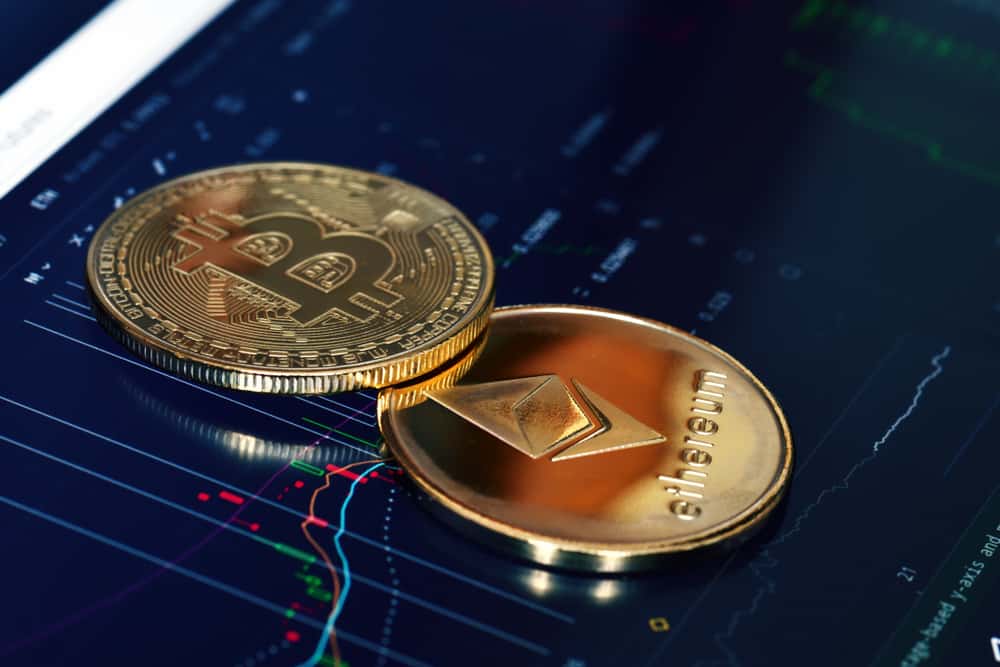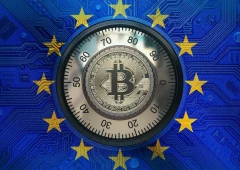Record $6 Billion Trading Volume for Bitcoin and Ethereum ETFs During Market Drop
06.08.2024 12:30 1 min. read Alexander Stefanov
On August 5, Bitcoin and Ethereum ETFs in the US saw a significant spike in trading activity, reaching nearly $6 billion amid market fluctuations.
Bitcoin ETFs, particularly BlackRock’s iShares Bitcoin Trust, led the way with $5.24 billion in trading volume. Meanwhile, Ethereum ETFs, including Grayscale’s Ethereum Trust and BlackRock’s iShares Ethereum Trust, saw $715.3 million in volume.
This surge in trading was driven by recent market instability, including a sharp drop in Bitcoin’s price, which briefly fell below $50,000. Despite this, Bitcoin has since partially recovered to around $54,200.
Early data on ETF inflows shows mixed results. The Grayscale Bitcoin Trust and ARK 21Shares Bitcoin ETF experienced significant outflows, while the Bitwise Bitcoin ETF and Grayscale Bitcoin Mini Trust saw modest inflows.
For Ethereum, the Grayscale Ethereum Trust faced outflows, whereas Bitwise and Franklin Templeton’s ETFs saw slight inflows.
Bloomberg analyst James Seyffart expects that, once all data is reviewed, Bitcoin ETFs will likely show a net increase in inflows.
-
1
Fartcoin Price Prediction: FARTCOIN Could Rise to $2.74 After Major Breakout
17.07.2025 16:01 3 min. read -
2
Ethereum Overtakes Bitcoin in Retail FOMO as Traders Shift Focus to Altcoins
17.07.2025 8:05 2 min. read -
3
Binance to Launch 2 New Contracts with 50x Leverage: Everything You Need to Know
10.07.2025 12:00 2 min. read -
4
Standard Chartered Becomes First Global Bank to Launch Bitcoin and Ethereum Spot Trading
15.07.2025 11:00 1 min. read -
5
Will Ethereum and Solana Benefit from Wall Street’s Shift?
09.07.2025 19:00 2 min. read
Crypto Analyst Sees HYPE Cooling After Explosive Run, Eyes New Entry
Crypto analyst Altcoin Sherpa has weighed in on $HYPE’s recent price action, suggesting that the token may have completed the majority of its current bullish leg.
Bitcoin Banana Chart Gains Traction as Peter Brandt Revisits Parabolic Trend
Veteran trader Peter Brandt has reignited discussion around Bitcoin’s long-term parabolic trajectory by sharing an updated version of what he now calls the “Bitcoin Banana.”
Ethereum’s On-chain Volume Surges 288% — Is a Breakout Next?
Ethereum’s network just witnessed a seismic shift in activity.
Binance Launches New Airdrop and Trading Competition
Binance has officially launched a new airdrop event for Verasity (VRA) through its Binance Alpha platform, giving eligible users the chance to claim free tokens and compete for a massive prize pool.
-
1
Fartcoin Price Prediction: FARTCOIN Could Rise to $2.74 After Major Breakout
17.07.2025 16:01 3 min. read -
2
Ethereum Overtakes Bitcoin in Retail FOMO as Traders Shift Focus to Altcoins
17.07.2025 8:05 2 min. read -
3
Binance to Launch 2 New Contracts with 50x Leverage: Everything You Need to Know
10.07.2025 12:00 2 min. read -
4
Standard Chartered Becomes First Global Bank to Launch Bitcoin and Ethereum Spot Trading
15.07.2025 11:00 1 min. read -
5
Will Ethereum and Solana Benefit from Wall Street’s Shift?
09.07.2025 19:00 2 min. read


